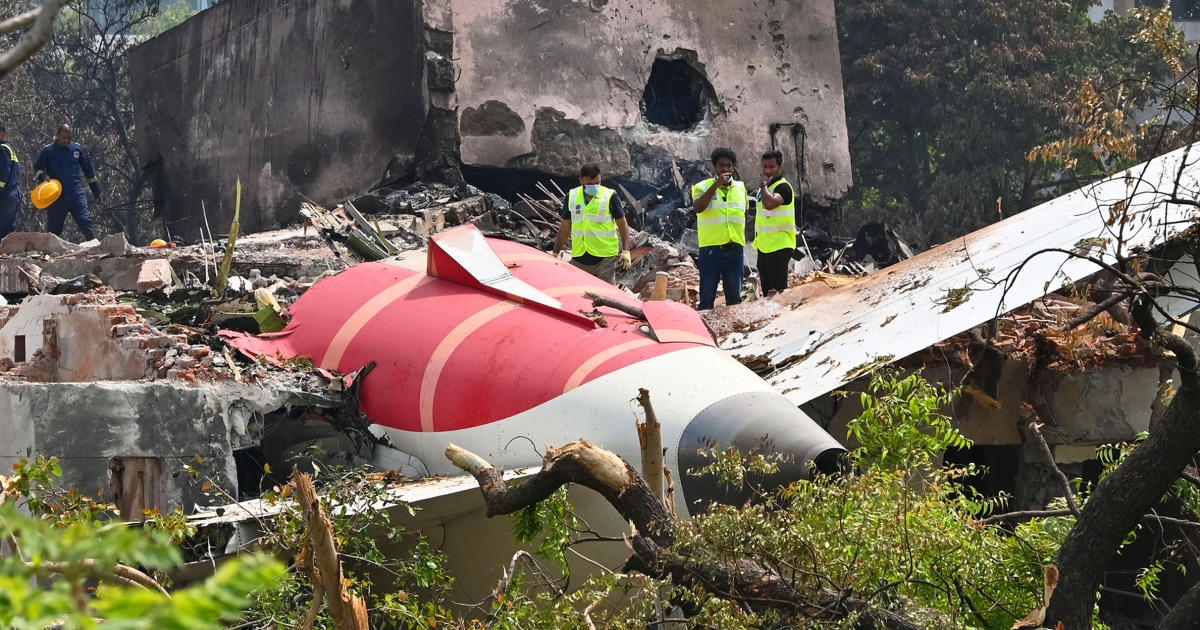The airline, seen as a symbol of India, had poured billions into expansion and modernization to repair its image after decades of neglect under state ownership.
Under the Indian conglomerate, which founded the airline in 1932 and bought it back in 2022 after it spent decades under government operation, Air India was making big moves, announcing a record order in 2023 of 470 aircraft valued at more than $70 billion.
A year later, the airline said it had begun a $400 million retrofit of its legacy fleet, accelerating the upgrade by leasing jets from other airlines, including Delta.
That momentum came to a grinding halt last month when a London-bound Boeing 787 Dreamliner crashed seconds after takeoff in the northwestern Indian city of Ahmedabad, killing all but one of the 242 people aboard plus 19 others on the ground in one of India’s worst aviation disasters.
Air India has since been under immense pressure to answer for the crash, but bereaved families were left with more questions after investigators released a preliminary report this month that said the plane’s fuel switches had been wrongly cut off, leading to speculation that one of the pilots might have done it accidentally or even intentionally.



Both can be discussed. In fact many levels of this can be discussed, from the effect on individuals and families involved in the crash, the effect on the owners of the buildings, the effect on the airport, the city, the airline, the country.
Just because they’re talking about the effects of a disaster like this on Air India, it doesn’t take away from what happened to the individuals. It shows the massive reverberations of an event like this.
The airline still has individuals working for it whose livelihood is potentially affected. There are people making the planes that the airline is purchasing. It’s people who live in India who are in mourning over the individuals who died but also shocked at the impact to a symbol of national pride.
If you’re not ready to think about the people beyond those directly affected, that’s fine. (I’m not being facetious. Everyone processes things in a different way. It’s really okay.) But a story like this is inevitably going to be bigger than those individuals and people will talk about different aspects of it. If it wasn’t that big, we probably wouldn’t be hearing or talking about it at all at this point.
You got me completely wrong
I just find it a very odd take to talk about the hurt feelings of all the other Indian pilots, just because maybe one did a mistake
This just smells too nationalized, because it just isn’t obvious, that it was a pilot mistake, and even then, why should all other Indian pilots do the same mistake?
Mistakes are human and happen. Shouldn’t, but it just is reality.
Reducing the issue to the image of Indian flights and pilots, was just too fast for me.
I care much more about what actually happened and how we can prevent it in the future.
I don’t really care if the pilot was Indian, Russian, Chinese, European or American.
The important part is to find out how to prevent it.
If pilots get overworked, then this is also an issue that needs to be addressed.
But the nationalism in this is just bullshit.
(And I’m not from India)
I think the larger question is if the cutoff was on purpose. They’re still not sharing all the cockpit audio. I know nothing about aviation, but everything I’ve read on this seems to point to an intentional crash. If not, why is the Indian government holding back anything at all?